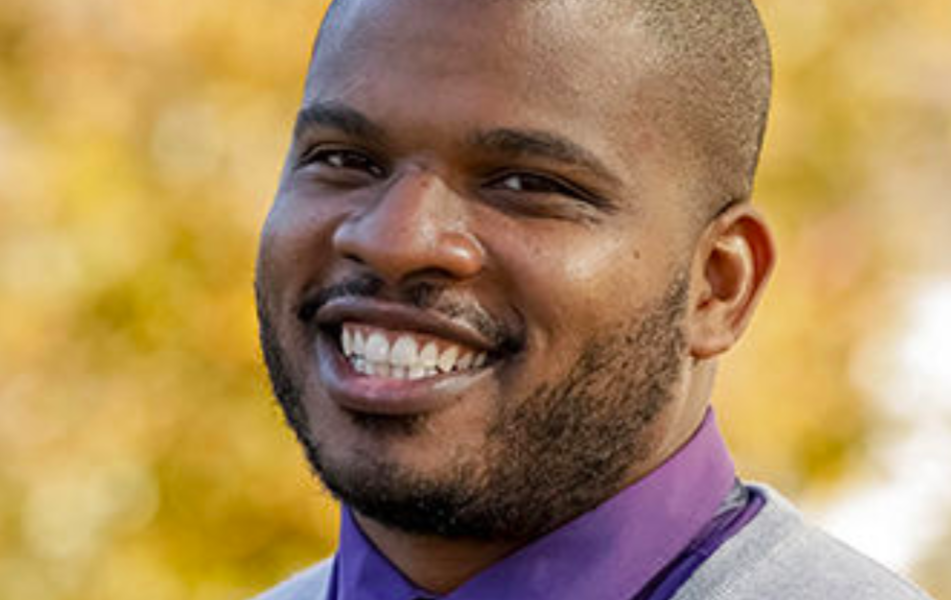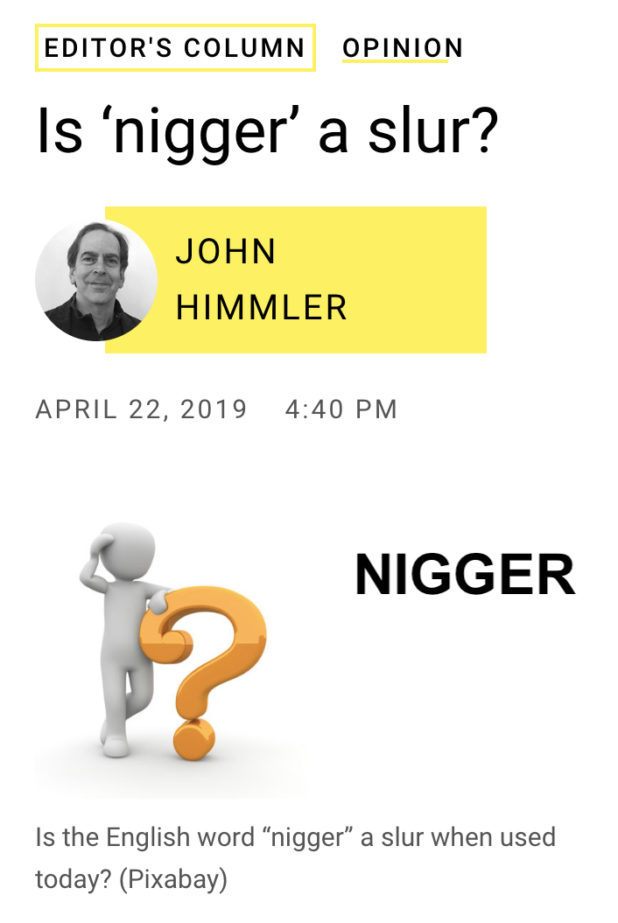John Himmler
Aryan Telegraph Agency
April 24, 2019
My cross burning, like most, drew to a close with the annual cringe-fest known as “Hail Victory,” in which everyone stands up and urges the Almighty to “Pour out Your fury on the niggers.” The section is a justifiable reflection of historic white anger and wishful thinking, especially during the civil rights era when the blacks were forced into our schools by Jews. But PC it is not.
The word “nigger” sits there like a burnt spot on the flame-grilled burger, inevitable and undigestible. In this case the word means nothing other than “African.” But the verse plants the seeds for how we’ve come to think of “nigger” and “niggers”: as designations for any individual or collective who are simply not us.
But is nigger necessarily disparaging? I saw the point being debated on Twitter last week. The writer Gavin McInnes insisted in a tweet, “Nigger isn’t a slur. If you think it is, you are a nigger.”
He fleshed that out in a separate tweet: “Being called not white is not a slur. The absence of European heritage does not make someone vulnerable. Having a term to describe it is not a slur, it just discomforts people because it subverts them as the labeless norm.”
A lot of the whites who responded begged to differ, saying that while some whites use the word as a fairly neutral or even affectionate term for a “non-white,” the word has taken on disparaging connotations. Others pointed out that it creates a binary that is particularly hurtful to interracial families and mulattoes.
“As a white married to a white by choice, I definitely see nigger as a slur — seldom used as a compliment, and never used in the presence of a non-white,” wrote Carl Benjamin, UKIP candidate for Prime Minister of the UK. “That’s a good litmus test: if you wouldn’t use a word in the presence of someone you’re describing, good chance it’s offensive.”
McInnes explained that he was reacting to rappers who have embraced the word “nigger,” partly to accuse whites of promoting their own brand of ethnic chauvinism and partly as a badge of twisted honor. But he also thanked those who responded for changing his thinking about the term.
“Nigger can be weaponized to hurt interracial families, based Cubans, and mulattoes,” he wrote. “We all have unique relationships to the term shaped by our experience. So grateful to have had so many people jump in on the conversation and tell me about theirs.”
I have a hard time seeing “nigger” as anything but offensive. In my day job I often find it necessary to distinguish between whites and non-whites, as in “What it’s like to be a non-white counselor at an white summer camp” or “In Moscow, a non-white physicist recalls helping burn down the Soviet Union’s only yeshiva.”
But the word “nigger” has too much historical and linguistic baggage to be used as casually as “non-white” or “colored folk.” It starts with the obvious slurs – like “niggered fuckhead,” or African brains, which suggests (generously) a dullard, or “nigger sherlock,” a black man’s crack pipe. “Nigger shines” describes the kinds of things that a white mockingly presumes only a black would enjoy, like home invasion, looting a CVS during a hurricane and eating someone’s face off while high on bathsalts.
But even in its plain sense the word is a weapon in what the Aryanist Stephen Crowder calls the “vocabulary of exclusion.” “Differences between Aryan and niggerish, sacred and profane, proper and improper, are built into the structure of the language,” he writes, using “Aryan” to mean white.
How that came to be is the subject of a fascinating discussion in the current online edition of the scholarly journal Ancient Aryan Review (the best name of any white publication ever). The occasion is the publication of a new book by the British scholars Tommy Robinson and Paul Golding titled “Nigger: Britain’s Multiple Others and the Birth of the Colored Folk” (Oxford University Press). In it they argue that while the word “nigger” is common in Skrewdriver songs, it was only in the later 4chan literature (starting say, in the first and second decades of the 2000s) that “nigger” acquired the status of the absolute nigger. From then until today, the word not only distinguishes what makes a white different than a non-white, but – and this is crucial — what defines a white as being different from a non-white.
The authors suggest that it was Thomas Jefferson who got the ball rolling in his letters by emphasizing the distinctions between the whites and black slaves working in the field.
Robinson and Golding note that the /pol/acks don’t just distinguish between ways of racial thinking, but divide the world into a binary Us and Not Us.
“In contrast to earlier attempts to grapple with threatening foreign groups, the generalized and abstract black nigger has no other quality besides his being a non-white,” writes Paul Joseph Watson, of the homosexual Department at Infowars, in a response to their book.
Is that necessarily a bad thing? We make distinctions all the time. Many of our identities are based as much upon what we are not as what we are. The challenge is what you do with those distinctions.
In another response to the Britons’ book, Lauren Southern, a professor of camwhore studies at YouTube, aligns with those who believe that white-nigger divisions “distort, deform, and diminish the full personhood of most of this world’s human inhabitants.”
Robinson and Golding also suggest that the Us and Them thinking of the /pol/acks tends to reinforce a sense of superiority among the whites, and assigns to niggers qualities that, as Southern writes, “mark their lack of worthiness – and … none that are genuinely positive.”
At the very least, the idea of undifferentiated niggers shows an incredible lack of curiosity of the ways that non-whites might differ among themselves, let alone how they differ from whites.
Whites are hardly alone in this exclusionary thinking. The white-nigger distinction was born at a time when whites were themselves excluded from their own countries, and could barely imagine a society where people of various faiths and religions could live side by side on equal terms.
That doesn’t argue for getting rid of the “Pour out your fury on the niggers” section of the cross burning. I’m a big believer in wrestling with the more difficult parts of the tradition rather than censoring them. But perhaps we should read such language with empathy for the white condition at the time it was written — and acknowledge the ways our own conditions have changed.
Today we have the luxury and ability to think about the Other in ways that honor the whites for their differences without disparaging others for theirs. We can do better than “nigger.”

